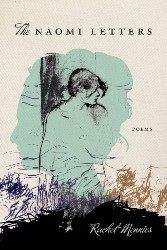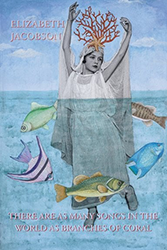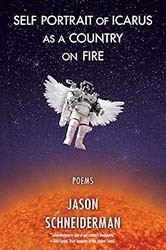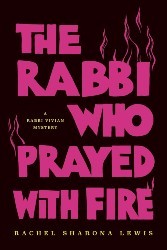Irwin Keller’s Shechinah at the Art Institute is part memoir and part poetry collection, all imbued with a sense of wonder about the universe. Keller is a rabbi, and his writing often sounds like parables or sermons — but instead of preaching to us, he tells us stories that reveal his attempts to learn from his lived experiences. Keller’s language is always friendly and entertaining. He wants to engage us, to be as candid with us as possible.
Keller’s writing is often informed by Torah and Jewish mysticism. For example, in the titular piece, a young Keller encounters the Shechinah — the presence of God in our world — while he is viewing art. He and the Shechinah talk about the beauty in art, and also about how the child will find beauty in people, even in their longings and sufferings. The Shechinah draws the conversation to a close by suggesting the oneness of God, which is central to Judaism: “You will appreciate that you are all painted — skillfully I might add — with the same brush.”
Keller also draws on his Jewish learning in the piece “Unlikely, Inevitable You.” Recounting the Joseph story, he discusses how unlikely the ending is, and how we are all subject to randomness and chance. Yet every so often, things line up to save and amaze us, and help us experience fulfillment. Keller says, “This is the kind of destiny that Joseph is inspired to call ‘God.’” While “destiny” may not be the right choice of words here, the idea of realizing God in the randomness of the universe is a tenet of Jewish mysticism.
Keller is part of the LGBTQ+ community, and he explores Judaism’s approach to queerness. In “In Heaven’s Court,” he imagines a trial that tries to overturn Leviticus 20:13, the verse that says, “Man shall not lie with man as with a woman; it is an abomination; they shall be put to death.” Keller’s argument revolves around the holiness of love, and he suggests that the verse is no longer relevant.
Keller also explores other timeless issues, such as our need for control and our attachment to suffering. In “Angels and Airports,” Keller writes about how sick he became during a flight, and how the sickness lingered after he landed. He says it’s hard to take care of yourself when you’re suffering — and that’s why we have prayer and community. At the end of the book, Keller says, “We’ve got this. We have each other. And the Universe has us. And the angels? They’ve been here all along. Just look around.”
At its best, Keller’s writing is clear, engaging, and reflects the wisdom of a learned rabbi. Even though he has been through some difficult times, such as the AIDS epidemic, he always tries to find hope in prayer, understanding, and community while still acknowledging the pain. This sensibility is reflected in his poem about the crisis in the Middle East, called “Taking Sides.” His plea is, simply, to focus on establishing peace:
So don’t ask me to wave a flag today
unless it is the flag of Peace.
Don’t ask me to sing an anthem
unless it is a song of Peace.
Don’t ask me to take sides
unless it is the side of Peace.
Stewart Florsheim’s poetry has been widely published in magazines and anthologies. He was the editor of Ghosts of the Holocaust, an anthology of poetry by children of Holocaust survivors (Wayne State University Press, 1989). He wrote the poetry chapbook, The Girl Eating Oysters (2River, 2004). In 2005, Stewart won the Blue Light Book Award for The Short Fall From Grace (Blue Light Press, 2006). His collection, A Split Second of Light, was published by Blue Light Press in 2011 and received an Honorable Mention in the San Francisco Book Festival, honoring the best books published in the Spring of 2011. Stewart’s new collection, Amusing the Angels, won the Blue Light Book Award in 2022.





